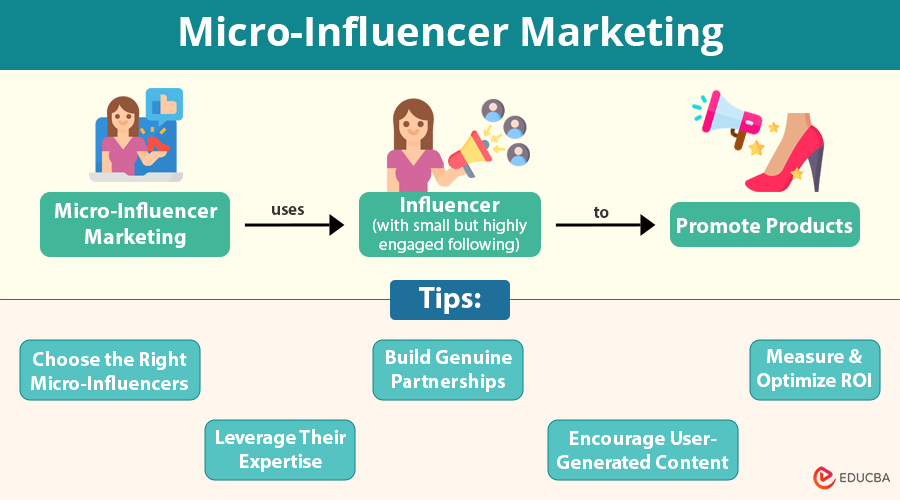
What is Micro-Influencer Marketing?
Micro-influencer marketing involves working with people with less but highly engaged social media following. These influencers usually have between 1,000 and 100,000 followers and are seen as more relatable and trustworthy by their audience.
These micro-influencers promote your products or services to their audience, helping you expand your reach, build trust, and enhance your brand’s visibility.
Even though micro-influencers have fewer followers, they usually generate higher engagement and conversions, making them a budget-friendly option for businesses looking for a good return on investment (ROI).
Why Is Micro-Influencer Marketing So Effective?
Here is why micro-influencer marketing for small businesses has such a strong impact:
1. Builds Trust Through Authentic Connections
Micro-influencers often have smaller but highly loyal followings. Their followers view them as relatable and trustworthy, leading to greater trust in their recommendations. Even without significant financial incentives, micro-influencers genuinely support the products or services they promote.
2. Achieves Higher Engagement Rates
Micro-influencers often achieve higher engagement rates compared to larger influencers or celebrities. Though their audience is smaller, their posts tend to receive more interaction. This increased engagement helps small businesses connect better with their customers and enhances brand awareness through social media.
3. Maximizes ROI with Cost-Effective Strategies
Small businesses usually have limited marketing budgets. Influencers, especially those with smaller followings, can often be compensated with product samples, special offers, or modest payments. This cost-effectiveness of micro-influencer marketing allows businesses to maximize their marketing investment and achieve great returns at a lower cost, instilling confidence in their marketing decisions.
How to Maximize Your Micro-Influencer Collaborations?
Once you understand what is a micro-influencer and their potential benefits, consider these key factors when planning a collaboration:
1. Choose the Right Micro-Influencers
The number of followers is not the sole criterion for selecting micro-influencers. Ensure that the influencers align with your company’s vision and mission. Their content should appeal to your target audience to promote your products or services effectively. Look at how often they post and how their audience responds. Utilize social media analytics to help identify suitable micro-influencers for your campaign.
2. Leverage Their Expertise
Despite their smaller scale, micro-influencers have strong connections with their audiences. Engage with your clients to create content that speaks directly to their followers. Encourage them to share their real experiences with your products or services, as personal stories can be very convincing.
3. Build Genuine Partnerships
Treat micro-influencer marketing as more than just advertising. Foster authentic, long-term relationships with influencers. Show genuine interest in their content and offer more than just financial compensation. Provide exclusive information or involve them in some aspects of your product or service. This approach helps create content that appeals to their audience and your target demographic.
4. Encourage User-Generated Content
Allow individuals with smaller followings to create sponsored posts from their accounts. This will reflect their followers’ opinions and act as genuine social proof. Incorporate this user-generated content into your marketing strategy to enhance its impact and effectiveness.
5. Measure and Optimize ROI
Analyze your campaign’s performance to boost engagement, sales, conversions, and shares. Monitor trends in engagement, website traffic, and sales linked to influencer efforts. Use unique coupon codes, separate tracking links, and distinct landing pages to measure conversions accurately. Use this data to refine and improve your strategy to reach your target audience.
Final Thoughts
Micro-influencer marketing for small businesses can be affordable in today’s market. It boosts brand awareness and expands reach. Small businesses can gain a high return on investment (ROI) from their influencer marketing campaign by working with micro-influencers and using effective strategies.
Recommended Articles
We hope this guide to micro-influencer marketing for small businesses was helpful. Explore these articles to learn more about maximizing your marketing strategies and building effective partnerships.

